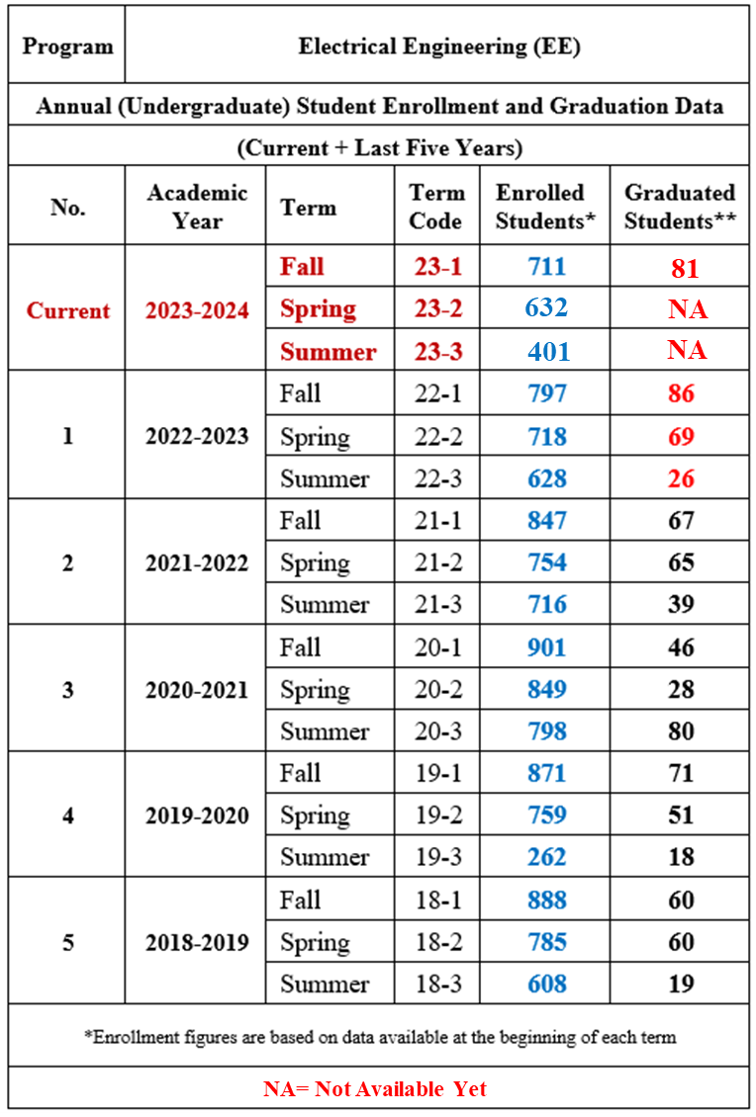Continuous assessment is the key for quality assurance at the university. The aim of assessment is to understand how educational programs are working and to determine whether they are contributing to student growth and development. Program assessment focuses on programs rather than on individual students. It provides information on whether the curriculum as a whole provides students with the knowledge, skills and values that graduates should possess in accordance with its mission and set goals and learning objectives.
The new trends in accreditation criteria have brought outcome assessment to focus. Accrediting agencies such as Accreditation Board for Engineering and Technology (ABET), the Association to Advance Collegiate Schools of Business (ACCSB), the Computer Science Accreditation Board (CSAB) and the National Architectural Accrediting Board (NAAB) require programs or colleges seeking accreditation to have self-assessment. Industry push and competitive job markets have also contributed to the need for continuous program quality improvement that focuses on student learning and preparation for professional practice after graduation.
The Program Assessment Center (PAC) at KFUPM strives to achieve its mission towards developing quality education that meets local industry needs following reputable international standards. It provides the necessary services and support for the various academic programs and research units at the University. It also facilitates and coordinates their efforts to meet their objectives and institutional goals.
ABET accreditation/Educational Objectives/Student outcomes/Enrollment/Graduation
ABET Accreditation:
| The undergraduate program BS in Electrical Engineering is accredited by the Engineering Accreditation Commission (EAC) of ABET, https://www.abet.org, under the General Criteria and the Electrical and Electronics Engineering Program Criteria |  |
Program Educational Objectives:
The EE department has defined a set of program educational objectives that translates its mission into defined tasks.
The objectives are measures of the graduates’ achievements 3 to 5 years after completing the program.
The Electrical Engineering program provides broad foundations to achieve the following objectives:
1. Graduates will have a successful career in Electrical Engineering.
2. Graduates will advance to the position of leadership in their profession.
3. Graduates may pursue their professional development through self-learning and advanced degrees.
Student outcomes:
Before or upon their graduation the Electrical Engineering students are expected to:
- An ability to identify, formulate, and solve complex engineering problems by applying principles of engineering, science, and mathematics
- An ability to apply engineering design to produce solutions that meet specified needs with consideration of public health, safety, and welfare, as well as global, cultural, social, environmental, and economic factors
- an ability to communicate effectively with a range of audiences
- An ability to recognize ethical and professional responsibilities in engineering situations and make informed judgments, which must consider the impact of engineering solutions in global, economic, environmental, and societal contexts
- An ability to function effectively on a team whose members together provide leadership, create a collaborative and inclusive environment, establish goals, plan tasks, and meet objectives
- An ability to develop and conduct appropriate experimentation, analyze and interpret data, and use engineering judgment to draw conclusions
- An ability to acquire and apply new knowledge as needed, using appropriate learning strategies.
Annual Student Enrollment:
